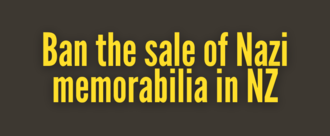Search result for "New Plymouth ".
-
Make the NZ courts safe for victim-survivorsDear Prime Minister, New Zealand’s response to violence against women and children is only as good as the weakest part of our response system. The recent case of Mrs P reported in the media, along with extensive accounts from advocates, victim-survivors themselves and researchers over many years has shown that the courts are one of our weakest points. The urgent changes we are calling for require our courts (Family, Criminal and the higher courts) to respond safely and effectively to protect victim-survivors and be more transparent and accountable to the people they serve (New Zealanders). On 22 April 2021, an open letter was sent to the Prime Minister. The letter has been signed by 71 academics and agencies from throughout New Zealand and asks for the following; • We request that the Government provides Mrs P with appropriate compensation for the harm caused to her by the “miscarriage[s] of justice” (W v R [2020] NZCA 286) she has suffered. • We request that you seek assurance from the Chief Justice, the Principal Family Court Judge, Chief District Court Judge, Chief High Court Judge, the Judicial Conduct Commissioner, and the Crown-Solicitor that Mrs P’s case will be internally investigated, and that accountability will be sought. • We request that those who acted inappropriately, contributing to this miscarriage of justice, are required to undertake training in domestic violence and coercive control. • We request that you pursue with the appropriate persons or bodies the need for urgent change within the Family Court to upskill its actors (judges, lawyers, psychologists) in the area of violence against women and children and coercive control, and design and implement a specialist response to family and sexual violence cases in the Family Court. This should include publication of Codes of Practice for Court professionals on Family Violence according to section 254 of the Family Violence Act 2018, to guide Court/professional conduct in relation to victims of family violence. • Until the Family Court can be trusted to act on the basis of up-to-date knowledge about intimate partner violence and sexual violence – rather than minimising, trivialising, and ultimately ignoring it, while turning the abused party into the villain – we request that input is sought from external experts in the field. This is essential and it is urgent if our courts are to care for the women (and their children) who do what the primary prevention of violence messages tell them to do – speak out and refuse to accept violence and abuse. • We request that the Government’s policies and interventions targeting the primary prevention of family violence consider how its messages and guidance to victims and survivors can be supported (rather than sabotaged) by the actions of other state actors – in this case our courts. • We request that the Government implement CEDAW’s recommendation for a Royal Commission of Inquiry into the Family Court. • We request that you reassure us that you have heard our concerns, and our requests, and that there is a pathway for putting measures in place that demand more accountability from the courts – and especially the Family Court – in its treatment of women and children who have suffered domestic violence and abuse. To read the Open Letter in full and the list of signatories please visit https://www.stuff.co.nz/national/crime/124918483/she-was-failed-experts-call-for-investigation-into-case-of-mrs-p ⭑ If you would like to show your support for the letter please add your signature to this campaign. ⭑ Your name will not appear on the OurActionStation website page. We may print off the names and postcodes of people who sign in support and share these with the Prime Minister. We won't share your details with any other third parties.2,069 of 3,000 SignaturesCreated by Action for Mrs P and other women and children in the Family Court
-
Fight for Te Rotorua nui a Kahumatamomoe (Lake Rotorua)We urge Te Arawa Lakes Trust, as the owner of the bed of Te Rotorua nui a Kahumatamomoe (Lake Rotorua), to do everything it can to stop Rotorua Lakes Council from discharging 20 million litres of treated sewage into the lake everyday for the next 30 years, by: 1. Taking legal action to stop the discharge (this includes filing an appeal if the Environment Court approves the discharge and if the appeal does not work then exercising their rights in the High Court) 2. Push for a new law so Lake Rotorua is given the same rights as a person Note: TALT has written a submission opposing the discharge, however, it has now engaged a Māori environmental management expert from Ngāti Tuwharetoa to encourage hapū around the lake, who are opposed to the discharge, to develop mitigation plans before this matter is heard by the Environment Court, which is likely to be in 2020. We believe it is way too early to start mitigating and compromising and that TALT must first exhaust all other options (High Court litigation and new legislation).4,723 of 5,000 SignaturesCreated by Renee Kiriona
-
No more pokies in Wellington!We are asking the Wellington City Council to implement a sinking lid policy. That will mean the Council will refuse any TAB, pub or club that applies to host pokies. This will, over time, reduce the number of pokie machines in Wellington City. We know that Wellington City Council can do the right thing and listen to the people in their community. The council can make the changes to respond to the harm pokies are causing. We ask the Wellington City Council to implement a gambling venues policy that introduces a sinking lid that provides: ★ A ban on any new venues including TAB venues: No new pokies venues will be permitted in Wellington. ★ No relocations: If a venue with pokies is forced to close or voluntarily closes, the Council will not permit the pokie machines to be relocated to any venue within the Council area. ★ No venue mergers: Where pubs and clubs that host pokies merge, they will no longer be permitted to host pokies. I make these recommendations as they constitute a public health approach to gambling harm. *Your name, address, phone number, and email address are required for this official submission and will be for Council use only.*324 of 400 SignaturesCreated by Paula Snowden
-
Minister Anne Tolley: Forgive WINZ Motel Emergency Accommodation DebtAs Minister of Social Development we call upon Minister Anne Tolley to urgently forgive all debts incurred by people who have been forced to stay in Motels as emergency accommodation, by WINZ. We believe this is an unacceptable burden to be placed upon people who are homeless and is passing the buck to those that can least afford it.10,070 of 15,000 SignaturesCreated by Kyle MacDonald
-
Give Them Green – Gore Aviary Welfare CampaignGore District Council owes the aviary birds under its care the best possible standards of welfare. In exchange for their lack of freedom and what they give back to the community, the undersigned hereby petition the Gore District Council to provide ample greenery to all the enclosures in the form of: • Green leafy branches, for perches • Plants in containers • Permanent plantings • Groundcover Action is required without waiting for the long term plan or next years revamp which in any case does not include specifics on the proposed aviary repair. Give Them Green - Gore Aviary Welfare Campaign - Facebook Page https://www.facebook.com/profile.php?id=61576558411832 *Petition & The details of the signatories will be publicly available once the petition has been presented to council.24 of 100 SignaturesCreated by Conrad Broad
-
COVID in Our Prisons - An Open Letter to the Justice SectorWe are calling on leaders in the Justice Sector to implement the following recommendations: For the Chief Justice, the Attorney-General and Solicitor-General and for the Minister of Justice: The Justice Sector COVID-19 Working Group must issue new guidance for bail decisions that recognises the risk of viral spread in prisons, prioritises release of people into the communities, and does not encourage criminal justice system actors to illegitimately invoke the COVID-19 context to remand people in custody or resist bail applications; The Working Group should also focus on how the Government can address the practical difficulties created by COVID-19 conditions on granting bail and handing down community-based sentences by providing accommodation and transport. This is an equity issue and likely to disproportionately impact on Māori; Where an individual is not currently remanded in custody and a custodial sentence is the most likely outcome, encourage judges to use the provisions already set out in the Sentencing Act to defer the start date of a sentence. Further, advise Judges that the current COVID-19 conditions in prisons should be taken into account in sentencing; Encourage the judiciary to consider risk to the health of individuals, their whānau and the wider community as a factor weighing against the imposition of a short term of imprisonment, and counting towards the imposition of non-custodial alternatives; Use s25 of the Parole Act to designate a “class of offenders” who have not reached their parole eligibility date who could be considered by the Board for early release, for example people with underlying health conditions that put them at greater risk of harm from COVID-19; Expedite parole hearings for all eligible prisoners; Identify and put in place temporary changes to bail requirements that could safely reduce the number of people held on remand. For the Minister of Corrections: Direct all prison managers that COVID-19 is a matter that affects eligibility for parole and ask them to consider additional people to be referred to the Parole Board, per s26 of the Parole Act. This is urgent given the implications for parole eligibility for those who have had rehabilitation programmes cancelled or deferred; Prioritise the release or transfer to alternative facilities of older people, pregnant people, and those with relevant pre-existing health conditions (including COPD, respiratory illnesses and those with compromised immunity); Ensure that people in prison have access to AVL rooms to communicate privately with legal representation and continue with steps to improve access to AVL facilities and other options for prisoners to remain in contact with family or whānau who cannot visit in person; Direct the Chief Executive to provide advice to you as to whether any legislative changes are required to ensure the safe custody and welfare of prisoners through an immediate modification order under the Epidemic Preparedness Act 2006. This advice should include the impact of the suspension of rehabilitation programmes and effective 23 hour cell lockdowns on the health and well-being of people in prisons; Deny recall to prison applications by the probation service for breaches of release conditions that do not involve undue risk to the public; Direct the Department to provide assistance in finding accommodation and transport for those on bail, community-based sentences, or release conditions, and prioritise the allocation of available accomodation (e.g motels) for these people to increase supported bail/release options for people being bailed, sentenced and paroled and as an alternative to being held in custody; Any additional capacity resulting from a shift in focus in the health sector should be directed towards providing additional mental health and addiction support to parolees and as an alternative to incarceration; Ensure that, at all times, incarcerated people have equitable access to the standard of PPE recommended by Ministry of Health guidelines; Address sanitation issues in prisons, in particular the many reported instances of poor ventilation; Provide air purifiers, prioritising prisons and blocks within prisons that have been identified to have poor ventilation; Ensure Corrections officers are not working across different units, to minimise the opportunity for spread of COVID-19 between units; Continue with efforts to ensure unvaccinated people in prisons have the information, confidence and assurances they need to accept COVID-19 vaccination when offered. For the Minister of Police: Use existing Police discretionary powers and support from AWHI to prioritise diversion over criminal prosecution, where that is consistent with public safety; Ensure additional funding is available for programmes and support services offered by iwi and hapu through Pae Oranga/Iwi Community panels as soon as they resume, to help tackle the drivers of offending.419 of 500 SignaturesCreated by Kirsten Van Newtown
-
Allow more students to qualify for Student Allowance to reduce student poverty.The government needs to change the overly strict requirements to be able to qualify for student allowance to make it accessible for more students who are in need of further financial support. You can't get a Student Allowance if your parents’ joint earnings, while you study, are more than $110,928.72 if you live with them and $119,202.07 if you don't live with them. These out of date limits leave many students having to give up university or live in extreme poverty. The government is responsible to create equal opportunities for all members of society. In this case, we think the government should increase the threshold for parents' incomes to help aid more students financially, to create equal learning opportunities for all.25 of 100 SignaturesCreated by Amy Friery
-
Protect Hawke's Bay riversDecline applications to take water from the Ruataniwha Basin.965 of 1,000 SignaturesCreated by Marnie Prickett

-
Ban the Sale of Nazi MemorabiliaMake the sale and display of Nazi memorabilia illegal77 of 100 SignaturesCreated by John-Paul Pochin
-
Call to Parliament for improved access to the residential care subsidyDear House of Representatives We ask that Parliament review and change the criteria of the residential care home subsidy, by: * Increasing the threshold for income and asset testing including the timeframe that these amounts are considered within. In particular for applicants that are single, and may have been for a certain time period. • Flexibility within the criteria to consider the current and future financial situation of the applicant in alignment with their current and future medical condition. In particular the reasoning for any gaining and gifting of assets and "income". • A decrease from the current 5 year period and increase in the threshold, prior to application, of any gifting that the applicant has made as part of their financial means assessment. • Shortening the 5 year stand down period if the applicant is denied the subsidy due to the asset and income thresholds. • A new process for applicants and their families to state and explain their individual circumstance and needs upon request by the applicant. This may include the wider whānau/family financial situation, the medical condition that has resulted in the need for the applicant to be placed in a residential care home.4,240 of 5,000 SignaturesCreated by Teuila Taylor





.jpg)




